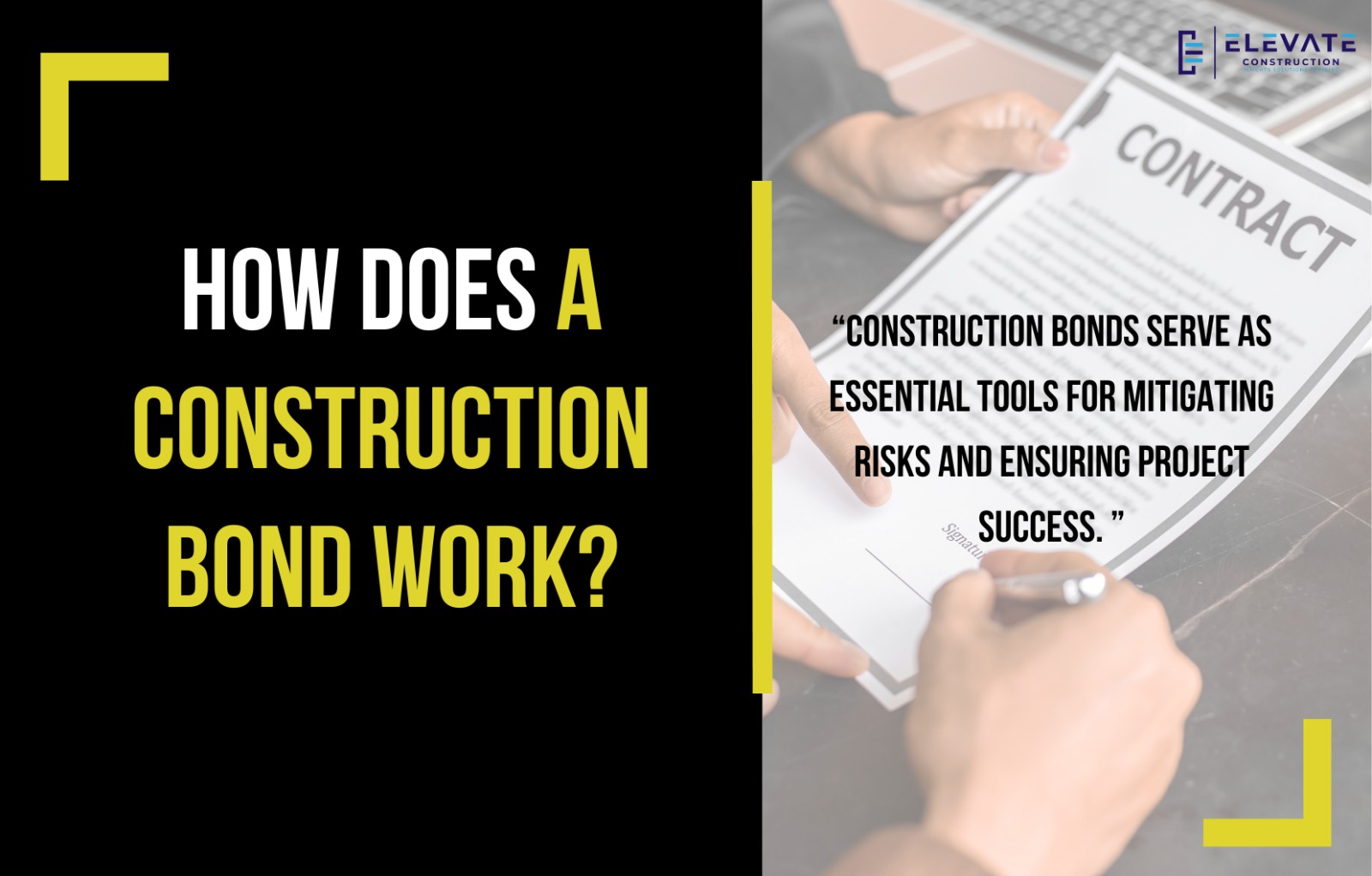Construction bonds play a crucial role in ensuring the successful completion of construction projects while providing financial security for all parties involved. In this blog post, we’ll dive into the fundamentals of construction bonds, exploring how they work, the different types available, and essential tips for obtaining them.
How Construction Bonds Work
A construction bond, also known as a surety bond, is a three-party agreement between the owner, the contractor, and the surety company. Its primary purpose is to guarantee that a construction project will be completed according to the terms and conditions outlined in the contract. Here’s a breakdown of the main types of construction bonds:
- Bid Bond: Submitted by the contractor along with their bid proposal, this bond ensures that the contractor will enter into a contract with the owner if their bid is accepted.
- Performance Bond: Guarantees that the contractor will perform the work as per the contract specifications. If the contractor defaults, the surety company compensates the owner for any financial losses.
- Payment Bond: Ensures that subcontractors, suppliers, and other parties are paid for their labor, materials, and services. It prevents liens from being placed on the property.
- Maintenance Bond: Also known as a warranty bond, it covers defects in workmanship discovered after the project’s completion. The contractor is obligated to correct any deficiencies during the maintenance period.
Steps in the Bond Process
Understanding the bond process is essential for all parties involved in a construction project:
- Contract Agreement: The owner and contractor enter into an agreement, outlining the bond requirements.
- Surety Company Involvement: The surety company assesses the contractor’s financial stability and creditworthiness.
- Bond Submission: The contractor submits the required bond(s) as part of their bid or contract agreement.
- Bond Activation: In case of default or non-compliance, the bond may need to be activated.
- Surety Investigation: The surety company conducts an investigation to verify the legitimacy of the claim.
- Surety Response: Upon completion of the investigation, the surety company responds accordingly.
- Contractor Obligations: The contractor may be required to reimburse the surety company for any payments made.
Helpful Tips for Obtaining Construction Bonds
Here are some tips to navigate the process of obtaining construction bonds effectively:
- Familiarize yourself with the different types of bonds and where they apply.
- Select reliable surety companies with a good reputation.
- Thoroughly review bond requirements outlined in contracts.
- Obtain bonds early to avoid delays.
- Maintain good financial standing and build business credit.
- Establish open communication with surety companies.
- Understand the bond claims process and seek training if necessary.
- Document every step of the process for reference.
- Monitor subcontractor bonds to ensure compliance.
- Address bond issues promptly and ask questions when in doubt.
By following these tips and understanding the bond process, contractors and owners can navigate the complexities of construction projects with confidence.
Conclusion
Construction bonds serve as essential tools for mitigating risks and ensuring project success. By familiarizing yourself with how construction bonds work and following best practices for obtaining them, you can streamline the process and protect your interests in construction projects. Stay informed, ask questions, and leverage the expertise of surety companies to navigate the complexities of construction bonding effectively.
If you want to learn more we have:
-Takt Virtual Training: (Click here)
-Check out our Youtube channel for more info: (Click here)
-Listen to the Elevate Construction podcast: (Click here)
-Check out our training programs and certifications: (Click here)
-The Takt Book: (Click here)
Discover Jason’s Expertise:
Meet Jason Schroeder, the driving force behind Elevate Construction IST. As the company’s owner and principal consultant, he’s dedicated to taking construction to new heights. With a wealth of industry experience, he’s crafted the Field Engineer Boot Camp and Superintendent Boot Camp – intensive training programs engineered to cultivate top-tier leaders capable of steering their teams towards success. Jason’s vision? To expand his training initiatives across the nation, empowering construction firms to soar to unprecedented levels of excellence.
On we go!


